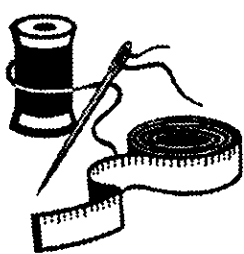Main Body
Chapter 1. My Father Was a Tailor
As I begin to write in this year of our Lord 1996, Father has been dead forty-one years. He died some time during the evening of November 10, 1955 at St. Vincent Charity Hospital in Cleveland, Ohio, after having suffered a heart attack. Ten days earlier, he had watched mother die suddenly of a heart attack at home on Halloween night. It had been a typical Halloween night. As fate would have it, i was there for dinner that evening and following dinner had joined mother handing out goodies to the youngsters until about nine o’clock. After the last youngster had come and been treated by mother, she announced, “It’s time to do the dishes!” I suggested that she join father, who was watching TV in the living room, and that I would gladly do the dishes. As usual, she dismissed my suggestion, saying, “No! We will do the dishes together. I’ll wash and you’ll wipe.” Having issued her orders, she washed and I wiped the dishes! It was around ten o’clock when we finally joined father. Within a short time, no more than about ten or fifteen minutes, mother began having difficulty breathing and gasping for breath! armed, I quickly telephoned my brother Nick, a physician whose medical offices were about ten minutes away and the priest from Saint Ignatius: Catholic Church, which was only five minutes away to come post-haste! Mother died in my arms as the priest was administering last rites and as my brother arrived. He had the heartbreaking task of pronouncing our mother dead. Throughout the traumatic moments of mother’s passing, father sat on the couch across the room speechless, watching with an unforgettable expression on his face. I realized then that father’s world and life had come to an end. Their life together had begun with their marriage in 1898 in the small town of their birth known as Laurenzana in the region now called Basilicata, located in southern Italy.
Father was born June 1, 1872, the fifth son of merchant Don Nicola D’Alessandro and Rosa D’Alessandro. Sisters Maria, Rosa, and Teresa followed to complete the family. Don Nicola early on had planned the careers of his sons. As youngsters, they were all to become apprentices in a trade or to be trained in some aspect of business in order that they might become partners in a combine of shops that he had planned. He began with Pietro, the first son. Pietro became the town cobbler and was set up in a shoe shop. Francesco, the second son, became a merchant like his father, responsible for the food store and for importing gourmet foods and wines, etc. Rosa, their very religious mother, foiled Don Nicola when it came to the third son’s career choice. Rosa insisted and got her way with the choice of vocation for that son.
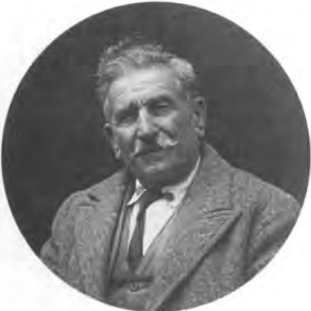
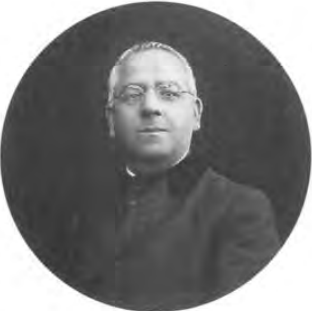
town priest
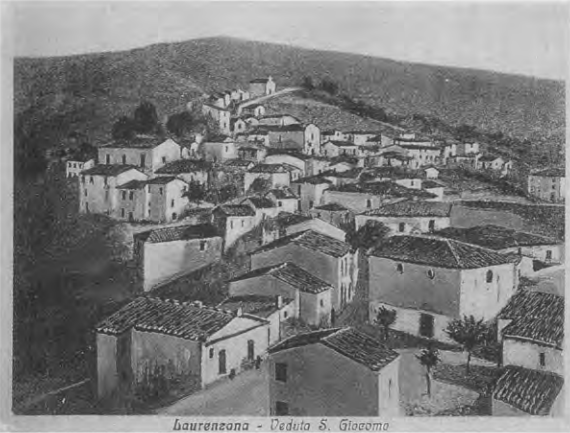
D’Alessandro parents of the author.
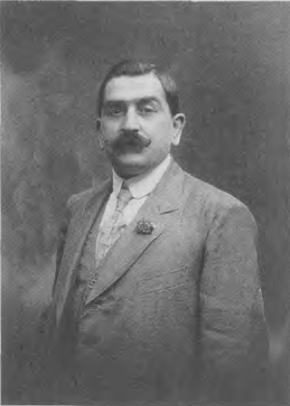
dry goods salesman, 1919
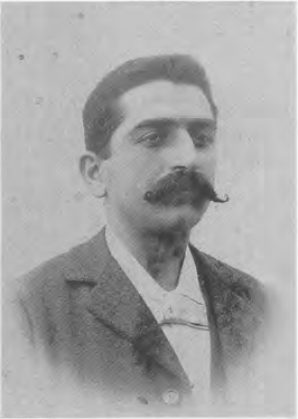
town cobbler
Giuseppe became the town priest. Don Nicola got back in stride in career planning for the remaining two sons. Gioacchino, number four son, was trained as a salesman and set up in the family dry goods store. When my father, Rocco, reached the age of ten, he was sent to the city of Naples where he was apprenticed to a master tailor, indentured as it were for a period of years. As a young apprentice in Naples, father was to spend eight intensive years in virtual servitude to the master tailor who among the master tailors of the city was renowned as a taskmaster and had the reputation for turning out exceptional young tailors. According to father, II Mastro had one saving grace. He was a firm believer in observing the Sabbath. He believed that Sunday, the seventh day of the week, was made for rest, especially after having worked hard the other six days of the week! He also believed that religious and national holidays should be observed. He had one condition. The recreational part of each Sunday and holiday could not and must not start until he and his charges had attended Mass! Father used to say that he was sure that his mother had made certain that this particular Mastro had been chosen to train him in the art of tailoring for his penchant for properly observing the Sabbath! I can recall father telling me that, although I1 Mastro worked him and his fellow apprentices from 12 to 14 hours a day from Monday through Saturday, he made every effort to see that the hours following church services were spent in some beneficial cultural, educational, or rewarding recreational activity. Father credits I1 Mastro for introducing him and his fellow apprentices to the theater, to the opera, and to the fine arts. As a child, I now remember father regaling me with stories about seeing and hearing Enrico Caruso, Luisa Tetrazzini, and other opera personalities perform. He recalled seeing Queen Victoria of England and Frederick Wilhelm, Crown Prince of Germany when they made state visits to the city of Naples. Having come from a small town, father and his fellows in training made the most of all the cultural, educational, recreational, and social experiences that came their way during their free time. As a result, the eight years spent in Naples had not only given them a trade, but also had broadened their horizons educationally, culturally, and socially. So it was that father returned to Laurenzana at the age of eighteen with the skills of a fine tailor and a sophistication and taste for things that a small town could not give him. As had been planned, his father established him in a shop to practice his trade, which father did as the dutiful son that he was.
In the year 1896, father, at the age of twenty-four, was betrothed to petite Maria Isabella Romanelli, who lived across the street from the D’Alessandro home at 45 Via Carlo Piscane. Maria Isabella was sixteen, five foot two, with dark brown eyes and beautiful, black wavy hair. Her father agreed to the betrothal on the condition that they wait two years to marry. He felt that his daughter was too young and insisted that she be eighteen before marrying. Shortly after Maria Isabella turned eighteen, she and father, then twenty-six, were married in the Chiesa San Rocco by Don Giuseppe D’Alessandro, father’s brother who by now was the parish priest. I was told over the years that it was a large church wedding and the event of the year in Laurenzana.
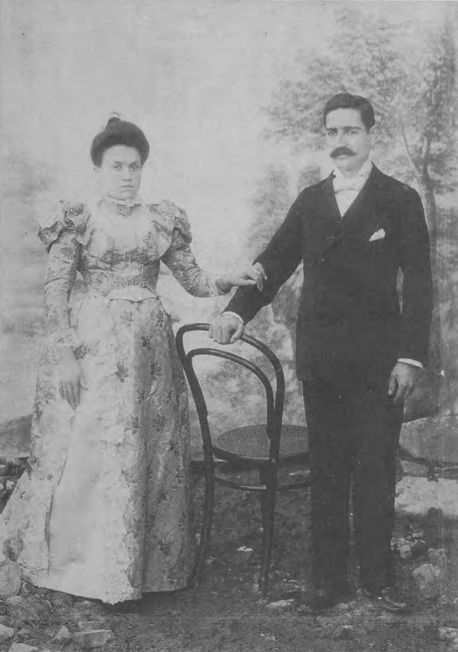
Maria Isabella Romanelli and Rocco D’Alessandro 1898
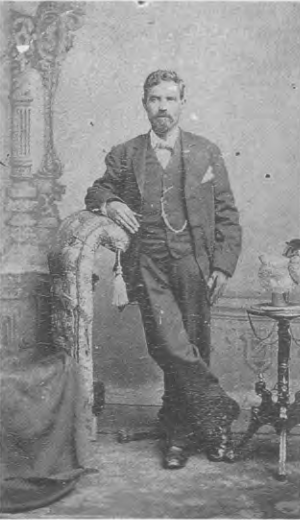
Romanelli, 1910
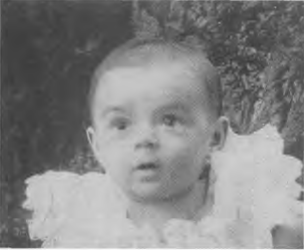
Salvatore) as an infant, 1900
Mario Saverio Romanelli successful cabinet maker and craftsman being the perfectionist that he was, had spared neither time nor money in planning and orchestrating the marriage of his only” daughter. Having been left a widower, he had lavished all his love and attention on her. She had not wanted for anything. Through the years, she used to tell me that in her father’s home, she had never had to lift a finger doing housework or chores of any kind. In fact, she’d say, “I never had to do my own hair, everything was done for me by hired help!”
As to be expected, the Romanelli-D’Alessandro wedding, was celebrated lavishly and sumptuously and was the talk of the town for months thereafter. A home for the newly weds was provided by Don Nicola, in close proximity to both family homes, which was agreeable to all concerned, thus providing a happy start for the young couple. Joy reigned supreme in the extended family when on March 12, 1899, a son was born to Rocco and Maria Isabella. He was christened by his uncle, the priest, shortly after birth and named Nicola after his grandfather, Don Nicola, as custom and tradition required in Italian families. All went well for the young family until young Nicola, at six months became ill and died suddenly of a fatal case of pneumonia. The young D’Alessandro couple and the grandparents were devastated. The entire extended family mourned for months.
Nature, however, will not be denied. As expected, Maria Isabella became pregnant again and delivered a second son on May 24, 1900. The entire family looked upon this as God’s way of making things right for the young couple. This boy, now as the number one son, was also baptized Nicola. However, he was given a second or middle name, Salvatore, which means savior, in honor of our Lord and Savior Jesus Christ.
By this time, father was twenty-eight years old. He had given ten years of his life running the family tailor shop. Having heard and read about the wonderful opportunities in the United States of America, he decided that he must come to the land of opportunity to better himself and his young family. This did not set well with his father. Don Nicola was astonished and disappointed that one of his sons would want to desert the family and the family business arrangement to go off on some wild goose chase, to a place where he had no assurance of the security and position he had at home.
